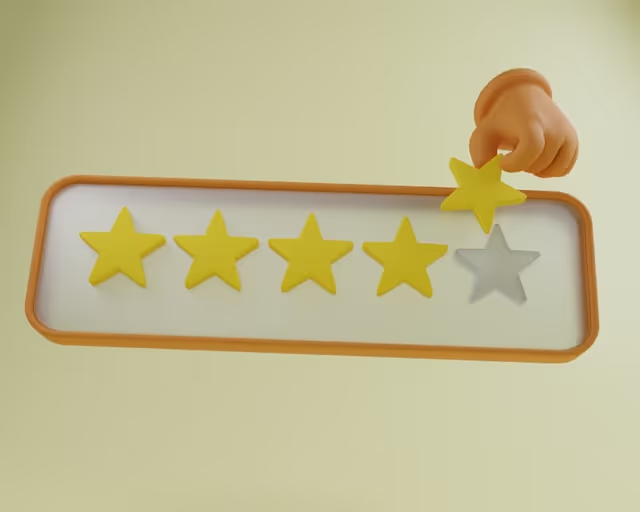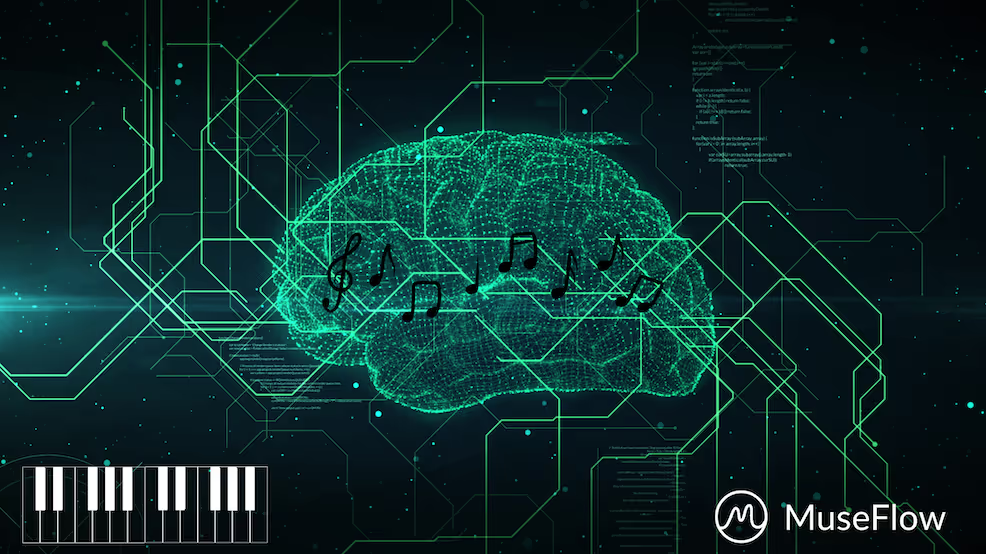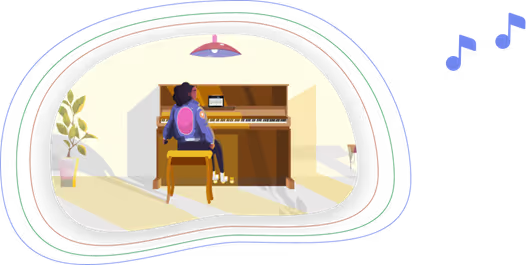Can AI Help You Learn Piano Faster?Evidence-Based Insights
The rise of artificial intelligence has sparked curiosity about its potential in music education. Many learners ask: Can AI help you learn piano faster? The idea is appealing — adaptive systems that respond to your skill level, provide instant feedback, and accelerate progress. However, not all AI-assisted tools are equally effective. Understanding what actually drives improvement can help you separate marketing claims from genuine learning strategies.
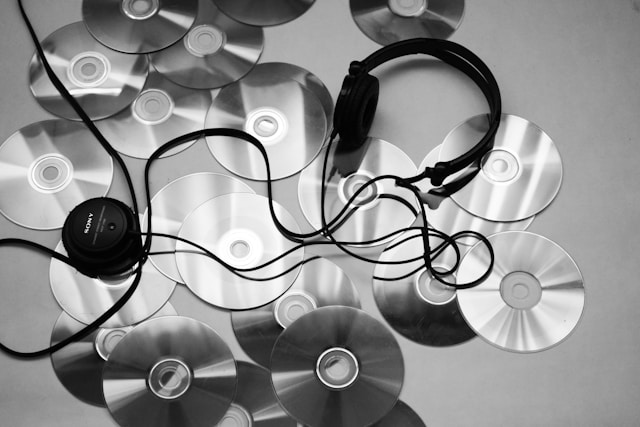
What “AI Piano Learning” Really Means
When people ask about AI in piano learning, they often refer to systems that:
- Adjust difficulty based on your performance
- Offer immediate, actionable feedback
- Suggest the next practice steps tailored to your skills
Research on skill acquisition and adult learning consistently shows that consistent, structured practice combined with timely feedback leads to better outcomes than occasional, error-free practice alone. The same principles apply whether the system uses algorithms, AI, or traditional instruction methods.
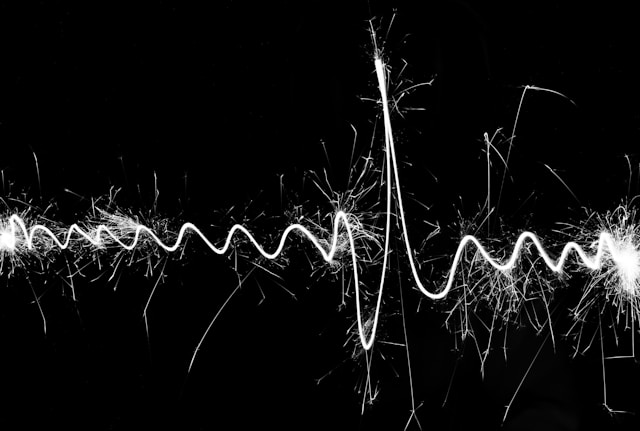
Common Limitations in AI Piano Apps
Many so-called AI piano apps simply track whether you hit the right notes. While useful, this approach primarily supports memorization rather than transferable musical skills. Effective learning requires sight reading fluency — the ability to interpret and perform new music quickly. According to music education research, sight reading proficiency is the strongest predictor of long term musical success.
Fixed song libraries or repetitive exercises can inadvertently reinforce dependence on the software rather than independent skill development. In contrast, tools that generate non-repeating exercises and adapt in real-time encourage learners to read, interpret, and play music more flexibly.
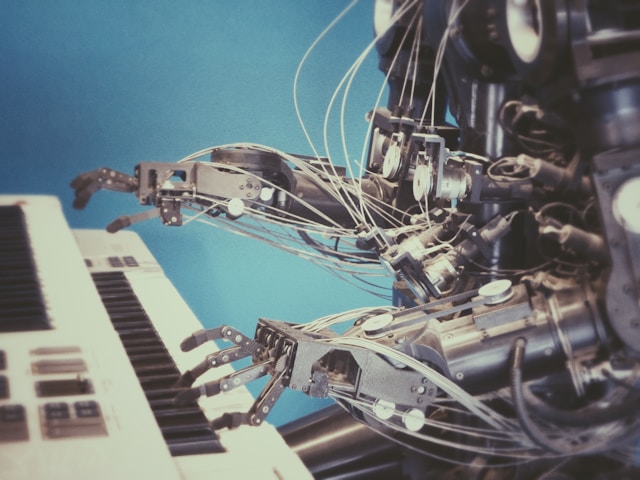
Principles That Actually Accelerate Piano Learning
Regardless of AI involvement, several educational principles are consistently linked to faster skill acquisition:
- Immediate Feedback Loops
Receiving corrections in real-time allows the brain to encode accurate patterns more efficiently. This reduces mistakes from becoming ingrained and reinforces proper technique. - Adaptive Difficulty
Challenges should match the learner’s current skill level. Too easy leads to boredom; too hard leads to frustration. Adaptive systems keep learners in a “sweet spot” of achievable challenge, optimizing motivation and progress. - Focus on Skill Building Over Memorization
Sight reading and musical literacy are strong predictors of long-term performance success. Practicing new sequences, rather than repeating familiar songs, encourages cognitive flexibility and pattern recognition. - Consistency and Engagement
Even short daily sessions outperform longer, sporadic practice. Tools that make practice engaging — through visual progress indicators, incremental challenges, or brief achievements — help learners stick with their routines. Well-designed practice systems also support sustained focus, often described in music education research as a flow state, where challenge and skill remain balanced over time. Research on microlearning shows that short, structured sessions with immediate feedback accelerate skill acquisition.
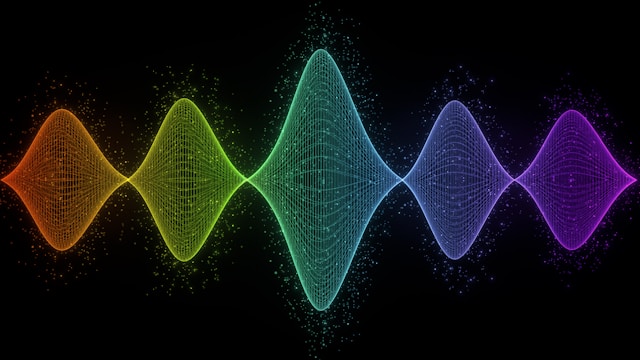
Example: MuseFlow as an Illustrative Platform
MuseFlow offers an approach aligned with these principles. Its real-time feedback system provides color-coded notes for instant correction, and its adaptive exercises generate new music sequences continuously, reinforcing sight reading skills rather than memorization. Users progress through levels and challenges that match their individual skill, keeping them in the optimal learning zone.
While this is one example, the underlying takeaway is that AI is not a magic shortcut. Success depends on consistent engagement, adaptive challenges, immediate feedback, and meaningful progression.
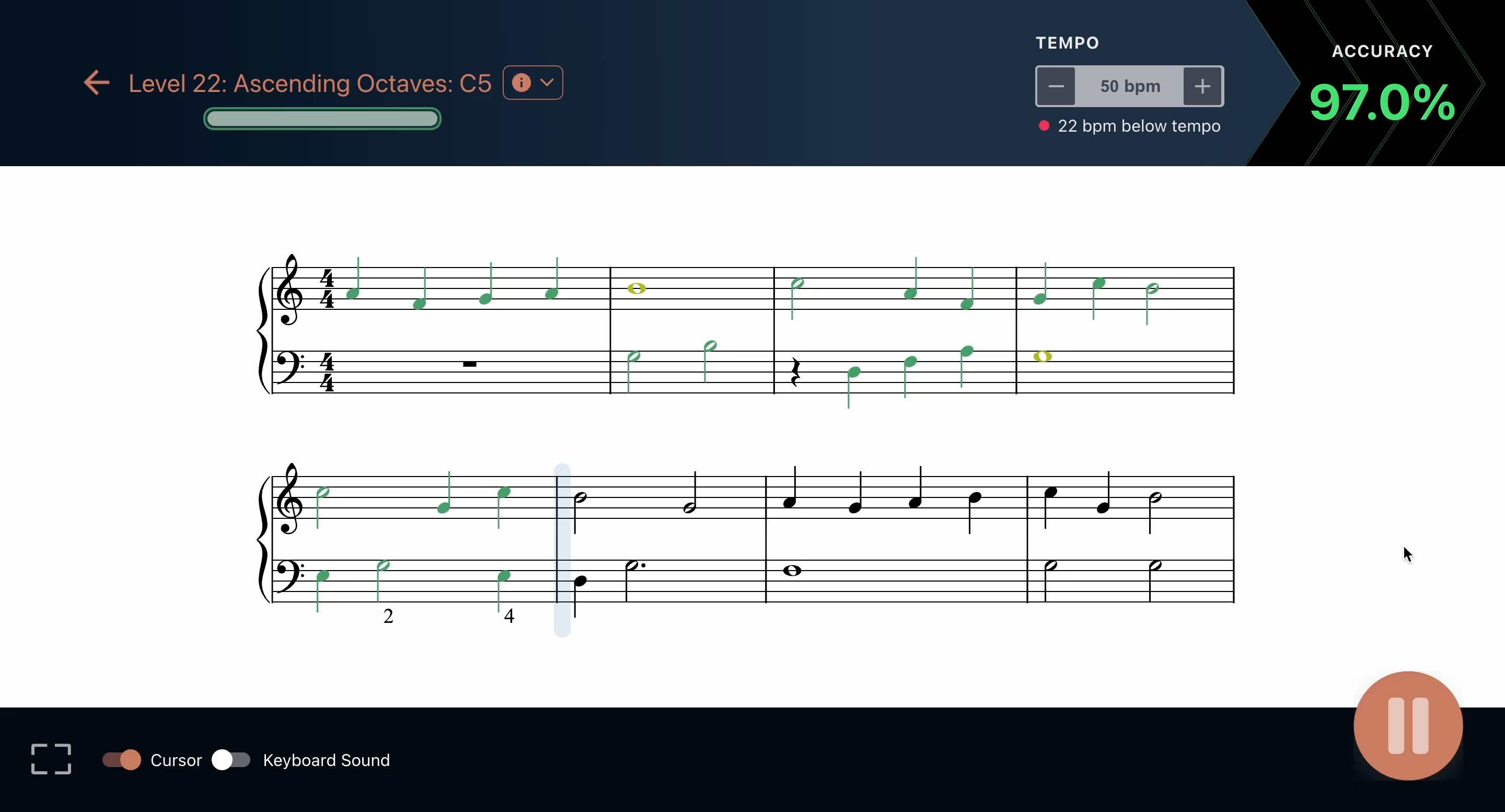
Key Takeaways
- AI-powered systems can accelerate piano learning if they adhere to evidence-based principles.
- Sight reading proficiency, adaptive difficulty, and immediate feedback are more important than novelty or flashy features.
- Short, frequent practice sessions consistently outperform longer, inconsistent ones.
- Platforms like MuseFlow illustrate how algorithmic personalization can be combined with these principles, but the same benefits can be achieved with other tools that follow similar learning strategies.
Ultimately, whether using AI, algorithms, or traditional methods, the goal is to develop transferable skills, maintain motivation, and reinforce consistent learning habits. Learners who focus on these core principles will see measurable progress, gain musical independence, and enjoy a more fulfilling piano practice experience.


.svg)
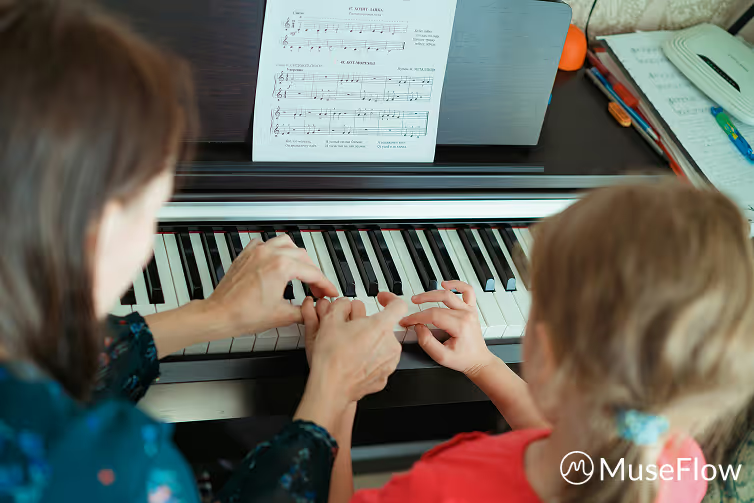
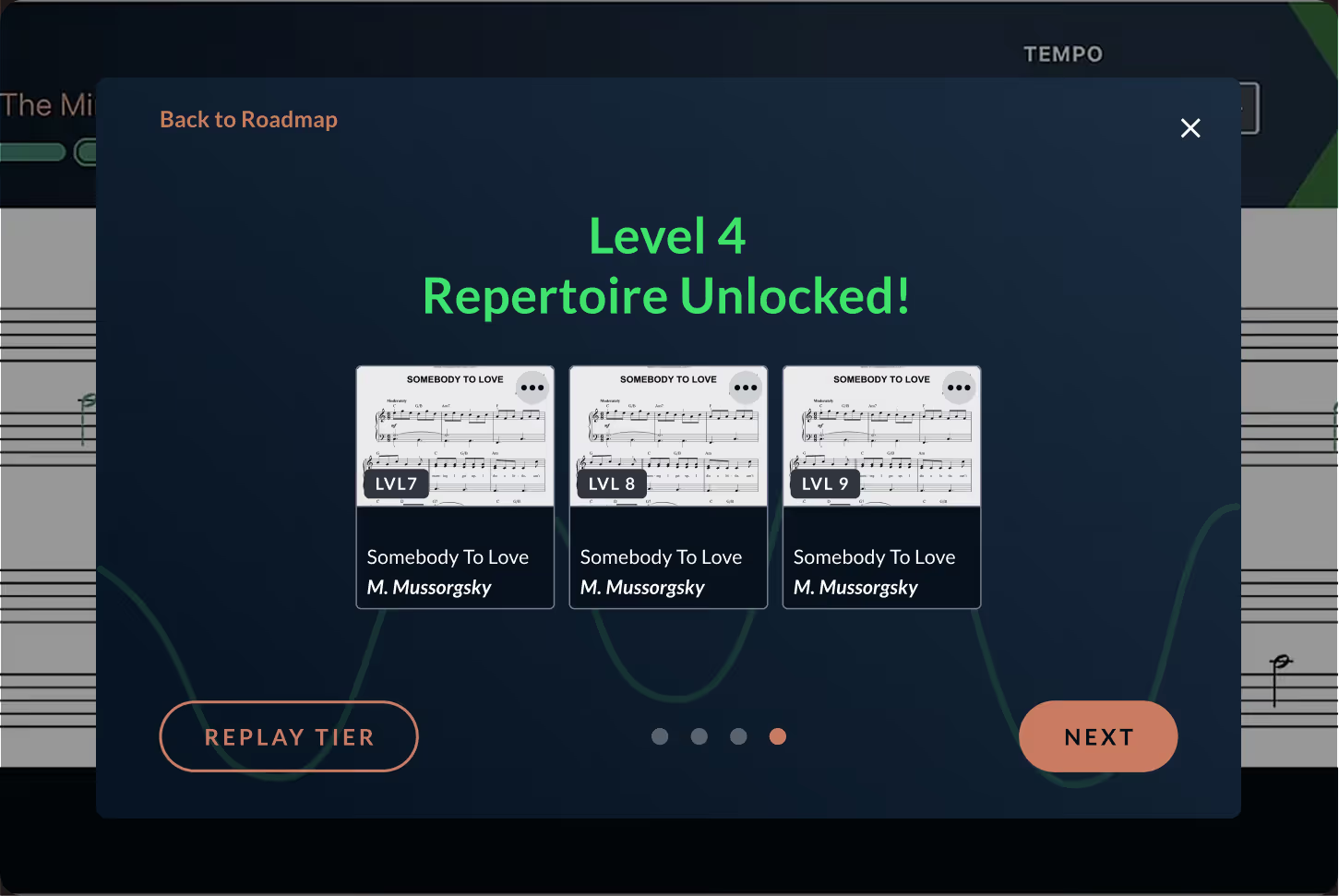
.jpg)
